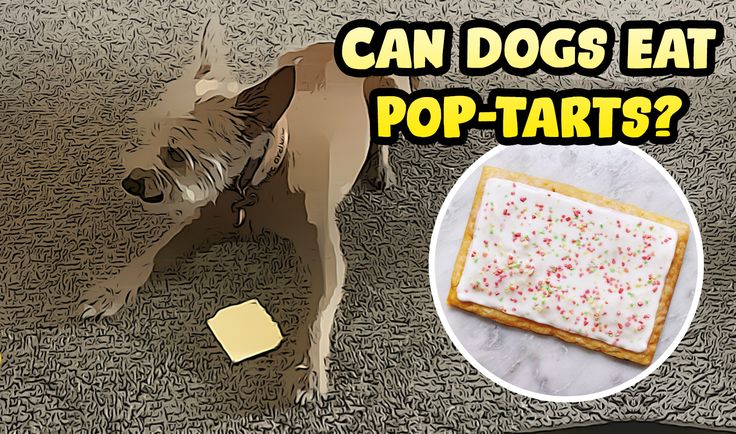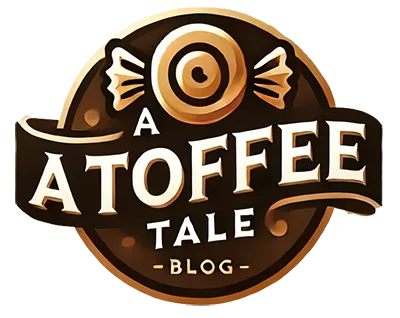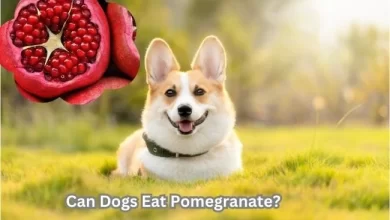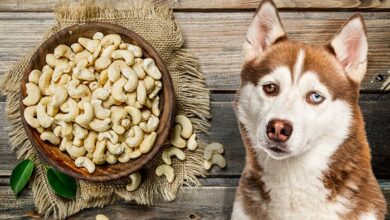Can Dogs Have Pop Tarts? Health Risks and Alternatives

Ensuring your dog receives the proper nutrition is fundamental to their overall health and well-being. Dogs require a variety of essential nutrients to maintain optimal health, including proteins, fats, carbohydrates, vitamins, and minerals. These nutrients play a vital role in supporting various bodily functions, such as muscle development, energy production, immune support, and maintaining a healthy coat and skin. It’s important to note that canine dietary needs differ significantly from those of humans.
While we may enjoy a diverse diet that includes a wide range of foods, dogs have specific nutritional requirements that are best met through a balanced diet tailored for their species. Providing balanced nutrition for dogs is crucial for preventing health issues, promoting longevity, and ensuring they lead happy, active lives. By understanding the unique dietary needs of dogs, pet owners can make informed decisions about their dog’s food and treat options. Can dogs eat pop tarts?This contributes to their furry friend’s overall health and happiness.
Ingredients in Pop Tarts: Are They Safe for Dogs?
As pet owners, it’s natural to be concerned about the safety of the foods our dogs may encounter, including human snacks like Pop Tarts. While Pop Tarts may seem harmless, it’s essential to understand their ingredients and potential effects on canine health. This overview will examine the common ingredients found in Pop Tarts, identify any harmful components, and highlight specific ingredients that can be toxic to dogs.
Overview of Common Ingredients in Pop Tarts:
Pastry Crust: Typically made from enriched flour, vegetable oil, sugar, and various additives for texture and flavor.
Filling: May contain fruit preserves, flavored syrups, or chocolate, often comprising high-fructose corn syrup, fruit concentrates, or artificial flavorings.
Glaze: Usually composed of sugar, water, corn syrup, and artificial colors for visual appeal.
Presence of Harmful Ingredients:
Sugar: Pop Tarts are high in sugar, which can contribute to obesity, dental issues, and metabolic disorders in dogs when consumed regularly or in large quantities.
Artificial Additives: Many Pop Tarts contain artificial colors, flavors, and preservatives, which may not be well tolerated by some dogs and can potentially cause allergic reactions or gastrointestinal upset.
Preservatives: Ingredients such as BHA, BHT, and TBHQ are commonly used in Pop Tarts to extend shelf life, but they have raised concerns about their potential health effects.
Specific Ingredients that are Toxic to Dogs:
Xylitol: A sugar substitute found in some varieties of Pop Tarts, xylitol is highly toxic to dogs and can cause hypoglycemia (low blood sugar), seizures, and liver failure even in small amounts.
Chocolate: Certain flavors of Pop Tarts may contain chocolate, which contains theobromine and caffeine, both of which are toxic to dogs and can lead to vomiting, diarrhea, tremors, seizures, and death.
While Pop Tarts may be a popular human snack, their ingredients may not be entirely safe for canine consumption. Pet owners should be cautious when offering Pop Tarts to their dogs, avoiding varieties containing toxic ingredients such as xylitol or chocolate. Instead, opt for dog-safe treats specifically formulated to meet their nutritional needs, and consult with a veterinarian if you have any concerns about your dog’s diet or health.

Health Risks of Feeding Pop Tarts to Dogs
Feeding Pop Tarts to dogs may seem harmless, but it’s essential for pet owners to recognize the potential health risks associated with this practice. While dogs may enjoy the taste of these human snacks, the ingredients in Pop Tarts can pose immediate and long-term health hazards to canine companions. Understanding these risks can help pet owners make informed decisions about their dog’s diet and well-being.
Immediate Health Risks:
Gastrointestinal Upset: The rich and sugary ingredients in Pop Tarts, such as refined flour, sugar, and artificial additives, can upset a dog’s stomach and lead to symptoms like vomiting, diarrhea, and abdominal discomfort shortly after consumption.
Allergic Reactions: Some dogs may be allergic to specific ingredients in Pop Tarts, such as wheat, artificial colors, or preservatives, leading to allergic reactions such as itching, hives, or digestive issues.
Long-Term Health Risks:
Obesity: Pop Tarts are calorie-dense and high in sugar, leading to weight gain and obesity in dogs if consumed regularly or in large quantities. Obesity increases the risk of various health problems, including joint issues, heart disease, and respiratory problems.
Diabetes: The high sugar content in Pop Tarts can contribute to the development of diabetes mellitus in dogs over time, a chronic metabolic disorder requiring lifelong management and monitoring.
Dental Issues: The sticky texture of Pop Tarts can adhere to a dog’s teeth, promoting the growth of plaque and tartar, which can lead to dental decay, gum disease, and oral infections if not addressed.
Symptoms of Food Poisoning or Intolerance in Dogs:
Vomiting and Diarrhea: Sudden onset of vomiting and diarrhea shortly after consuming Pop Tarts may indicate food poisoning or intolerance.
Lethargy: A decrease in energy levels or reluctance to engage in normal activities may suggest discomfort or illness caused by ingesting unsuitable food.
Abdominal Pain: Signs of abdominal discomfort, such as whining, restlessness, or guarding the abdomen, may accompany gastrointestinal upset or food intolerance in dogs.
While Pop Tarts may seem harmless, they can pose significant health risks to dogs if consumed regularly or in large quantities. Pet owners should prioritize their dog’s health by avoiding feeding them human snacks like Pop Tarts and instead opt for nutritionally balanced dog treats specifically formulated to meet their dietary needs. If a dog exhibits any symptoms of food poisoning or intolerance after consuming Pop Tarts, it’s crucial to seek veterinary attention promptly to address any potential health concerns.
Situations Where Pop Tarts Might Be Considered
While Pop Tarts are not a typical part of a dog’s diet, there may be certain situations where pet owners consider offering them to their canine companions. However, it’s essential to approach this decision with caution and consideration for the dog’s health and well-being. This discussion explores scenarios where Pop Tarts might be considered for dogs, emphasizing the importance of moderation, assessing the dog’s overall health, and understanding the potential effects of limited consumption.
Emergency Treat Scenarios (with Caution):
Lack of Dog-Specific Treats: In emergency situations where traditional dog treats are not available, a small amount of plain, unfrosted Pop Tart may serve as a temporary treat to reward or comfort a dog.
Travel Convenience: Pop Tarts’ individually wrapped packaging makes them convenient for travel or outdoor activities where carrying dog-specific treats may not be practical. However, they should only be used sparingly and as a last resort.
Limited, One-Time Consumption and Its Effects:
Novelty Treat: Offering a small piece of Pop Tart as a one-time novelty treat may provide enrichment and variety in a dog’s diet, but it should not become a regular occurrence.
Minimal Impact: A single instance of consuming a small amount of Pop Tart is unlikely to cause significant harm to a healthy dog, but pet owners should still be mindful of potential adverse effects and monitor their dog for any signs of distress or illness.
Assessing Your Dog’s Overall Health Before Offering Human Food:
Pre-existing Health Conditions: Dogs with certain health issues, such as diabetes, obesity, food allergies, or gastrointestinal sensitivities, may be more susceptible to adverse reactions from consuming human foods like Pop Tarts.
Individual Dietary Needs: Consider your dog’s age, size, activity level, and dietary preferences before offering any human food, including Pop Tarts. What is safe for one dog may not be suitable for another.
While Pop Tarts may be considered in certain situations as a temporary or one-time treat for dogs, it’s crucial to exercise caution, moderation, and consideration for the dog’s overall health and dietary needs. Pet owners should prioritize offering nutritionally balanced dog treats specifically formulated for canine consumption and consult with a veterinarian if they have any concerns about their dog’s diet or well-being. Additionally, assessing the dog’s overall health and understanding the potential effects of limited consumption can help ensure the safety and well-being of canine companions.
Safe and Healthy Alternatives to Pop Tarts for Dogs
While Pop Tarts may not be suitable for canine consumption due to their high sugar content and potential harmful ingredients, there are plenty of safe and healthy alternatives available for dogs. From commercially available dog treats to homemade snacks made with wholesome ingredients, pet owners have numerous options to provide their furry friends with tasty and nutritious rewards. This discussion explores safe and healthy alternatives to Pop Tarts for dogs, including commercially available treats with health benefits, homemade snack recipes, and the benefits of natural, whole-food treats.
Commercially Available Dog Treats with Health Benefits:
Natural Ingredients: Look for dog treats made with natural, whole-food ingredients such as real meat, fruits, and vegetables, without artificial flavors, colors, or preservatives.
Functional Treats: Choose treats that offer additional health benefits, such as dental chews for oral health, joint supplements for mobility support, or treats enriched with vitamins and antioxidants for overall well-being.
Homemade Dog-Friendly Snack Recipes:
Peanut Butter Banana Bites: Mash ripe bananas and mix them with unsalted peanut butter. Spoon small amounts onto a baking sheet and freeze until firm for a delicious and nutritious frozen treat.
Sweet Potato Chews: Slice sweet potatoes into thin strips, toss them with a small amount of olive oil, and bake in the oven until crispy for a crunchy and satisfying chewy snack.
Oatmeal and Blueberry Cookies: Combine rolled oats, fresh blueberries, and a mashed banana. Form into small cookies and bake until golden brown for a wholesome and flavorful treat.
Benefits of Natural, Whole-Food Treats for Dogs:
Nutritional Value: Natural, whole-food treats provide essential nutrients, vitamins, and minerals that contribute to overall health and well-being.
Digestibility: Dogs can easily digest and metabolize natural ingredients, reducing the risk of gastrointestinal upset or food sensitivities.
Dental Health: Chewing on natural treats like dental chews or crunchy vegetables can help promote good dental hygiene by reducing plaque and tartar buildup.
When it comes to treating our canine companions, prioritizing safe and healthy alternatives to Pop Tarts is essential for their overall health and well-being. Whether opting for commercially available dog treats with health benefits or homemade snack recipes made with natural ingredients, pet owners can provide their furry friends with nutritious rewards that they’ll love. By choosing natural, whole-food treats, pet owners can ensure that their dogs receive the essential nutrients they need to thrive and maintain optimal health throughout their lives.
What to Do If Your Dog Eats a Pop Tart
Immediate Steps to Take to Mitigate Potential Harm:
Assess the Situation: Quickly determine the amount of Pop Tart your dog has consumed and whether any packaging or wrappers were ingested as well.
Remove Remaining Pop Tarts: Safely remove any remaining Pop Tarts or accessible food to prevent further ingestion.
Offer Water: Encourage your dog to drink fresh water to help dilute any potential toxins and aid in digestion.
Monitor Your Dog: Keep a close eye on your dog for any immediate signs of distress or discomfort, such as vomiting, diarrhea, lethargy, restlessness, or unusual behavior.
Contact Poison Control: If you suspect the Pop Tart contained toxic ingredients such as xylitol or chocolate, contact your veterinarian or a pet poison control hotline immediately for guidance.
Monitoring Your Dog for Signs of Distress or Illness:
Vomiting and Diarrhea: Watch for vomiting and diarrhea, which may occur shortly after consuming the Pop Tart as the body attempts to expel the foreign material or due to stomach irritation caused by the ingredients.
Lethargy: Monitor your dog for a decrease in energy levels or reluctance to engage in normal activities, which may indicate discomfort or illness.
Abdominal Discomfort: Look for signs of abdominal pain, such as whining, restlessness, or guarding the abdomen, which may accompany gastrointestinal upset or food intolerance in dogs.
When and How to Seek Veterinary Help:
Toxic Ingestion: If the Pop Tart contained toxic substances such as xylitol or chocolate, or if your dog exhibits symptoms of poisoning, seek immediate veterinary assistance.
Persistent Symptoms: If your dog experiences persistent vomiting, diarrhea, abdominal pain, or other concerning symptoms beyond the initial reaction, it’s advisable to consult with a veterinarian for further evaluation and treatment.
Pre-existing Health Conditions: Dogs with pre-existing health conditions or a history of gastrointestinal issues may be more susceptible to complications from consuming non-canine foods like Pop Tarts, warranting prompt veterinary assessment.
If your dog eats a Pop Tart, taking immediate action to mitigate potential harm is crucial. By assessing the situation, monitoring your dog for signs of distress or illness, and seeking veterinary help if necessary, you can help ensure the well-being of your canine companion. Remember to prioritize your dog’s health and safety by avoiding feeding them human foods like Pop Tarts in the future and opting for nutritionally balanced dog treats specifically formulated for canine consumption.




